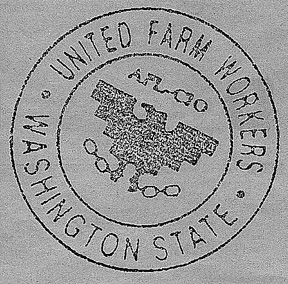Even in non-unionized fields, Washington's farm workers are frequently more fortunate than their counterparts in other states. As is true in most other states, Washington's agricultural industry is kept afloat on the backs of poorly paid Mexican immigrant farm workers. But unlike California, which produces far more fruits and vegetables than any other state, most of Washington's farm workers are legal immigrants, meaning that they have more leverage in negotiations with their employers. Also, due to the nature of the crops grown in Washington, a majority of the state's farm workers are not migrants, but live year-round in permanent communities and may be employed well beyond the peak harvest season.
Meanwhile, in recent years California's strawberry industry, which employs primarily illegal immigrants, has seen a return to virtual debt peonage. As reported by Eric Schlosser in the November, 1995 The Atlantic Monthly, many of California's strawberry growers have sought to minimize their personal risk by shifting the financial and legal burdens onto sharecroppers, now called "independent farmers." Poor Chicano farm workers eager for the chance to go into business for themselves are easily lured into signing contracts they usually don't understand. These contracts routinely stipulate that the sharecroppers will borrow money from the land-owner at inflated interest rates for all planting, irrigation, labor, and harvest expenses. At harvest time, the workers are required to sell their berries to the landowners, generally at prices well below market value. Sharecroppers may accumulate thousands of dollars of debt in a single season.
Union organizers in Washington state have vowed to work to prevent such deteriorating conditions here. According to the UFW's David Martinez, "In order to really make a difference in Washington, we have to go after the industry with the most workers: the apple industry." To that end, the UFW is currently planning an organizing campaign among the workers of Washington's Broetje Orchard, which already employs some UFW members. Broetje is the nation's fourth largest apple orchard, employing up to 1500 people at peak season. Accused by some farm worker advocates of beginning large-scale publicity campaigns and boycotts before workers in the fields have been convinced of the need for a union, the UFW intends to spread its message of better working conditions and wages resulting from union representation through intimate in-home meetings led by union representatives and sympathetic workers.
The UFW has already begun putting pressure on Broetje Orchard by assisting in claims filed with the state Department of Labor and Industries by 23 pesticide and herbicide applicators, alleging that the growers have broken labor laws by denying them ten minute paid breaks every four hours as required by federal law. Claims have also been filed stating that the orchard has endangered their health by requiring them to take their lunch breaks in fields which have been freshly sprayed with pesticides.
[Home]
[This Issue's Directory]
[WFP Index]
[WFP Back Issues]
[E-Mail WFP]
Contents on this page were published in the February/March, 1996 edition of the Washington Free
Press.
WFP, 1463 E. Republican #178, Seattle, WA -USA, 98112. -- WAfreepress@gmail.com
Copyright © 1996 WFP Collective, Inc.
 In an era which has seen the working conditions and wages of many of the nation's farm workers deteriorate further and further, victories for farm labor organizers have been few and far between. Thus it was with great jubilation that the United Farm Workers (UFW) announced this past fall that a contract had been signed between Chateau Ste. Michelle, Washington's largest winery, and 189 newly unionized farm workers. The agreement was the first union agricultural contract in Washington state, and represents the first major UFW victory in many years.
In an era which has seen the working conditions and wages of many of the nation's farm workers deteriorate further and further, victories for farm labor organizers have been few and far between. Thus it was with great jubilation that the United Farm Workers (UFW) announced this past fall that a contract had been signed between Chateau Ste. Michelle, Washington's largest winery, and 189 newly unionized farm workers. The agreement was the first union agricultural contract in Washington state, and represents the first major UFW victory in many years. 



